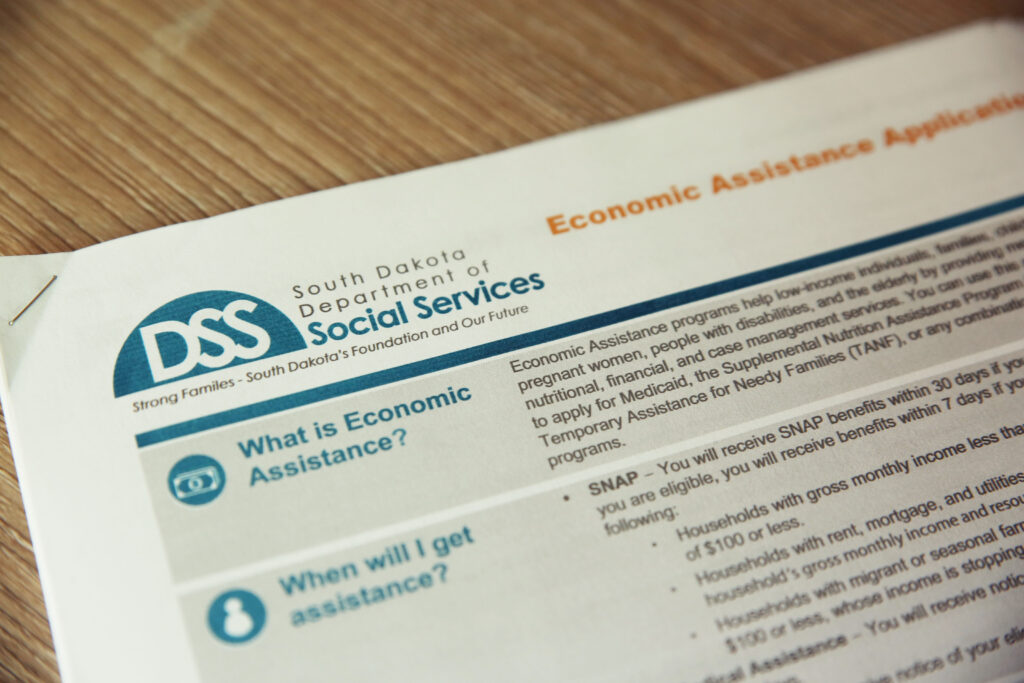
A South Dakota Department of Social Services economic assistance application. (Makenzie Huber/South Dakota Searchlight)
South Dakota will withdraw its Medicaid expansion work requirements proposal now that President Donald Trump has signed federal requirements into law, state Department of Social Services Secretary Matt Althoff told South Dakota Searchlight.
“We don’t have the choice,” Althoff said.
States have to apply for a federal waiver to impose their own requirements. The new law, passed earlier this month, “constricts any waivers” more lenient than the federal requirements, Althoff added.
The state’s proposal would have implemented fewer paperwork and tracking requirements than at the federal level, officials said during a public hearing process. Althoff called the waiver application a potential “exercise in futility” shortly after it became clear that federal requirements could be adopted.
The department proposed its work requirements this spring after South Dakota voters passed a constitutional amendment in November allowing the state to seek work requirements for the federal-state program.
Medicaid is government-funded health insurance for people with low incomes. South Dakotans voted in 2022 to expand Medicaid to adults with incomes up to 138% of the poverty level, a decision that allowed the state to capitalize on a 90% federal funding match.
The federal work requirements will mandate that those between the ages of 19 and 65 who rely on the program work, volunteer or go to school 80 hours a month. Participants will have to meet those requirements a month before they enroll, and Medicaid renewal will be moved from an annual basis to every six months.
The federal government allows exceptions for people who are disabled, pregnant, eligible for the Indian Health Service, in foster care, were formerly in foster care and are younger than 26, or were released from incarceration in the last 90 days, among others.
South Dakota’s plan would not have set a number of hours to be eligible, but would have required Medicaid recipients to work, train, attend school, or serve as a caretaker for a child or elderly or disabled person in their home, unless they qualified for an exemption. Compliance with the state-level work rules would have been reviewed on an annual basis, at the time of Medicaid renewal, rather than at the time of application.
South Dakota Medicaid Director Heather Petermann said during the public hearing process that the state-proposed requirements were intended to “encourage” work without “trying to track arbitrary work hours.”
The federal work requirements must be implemented by the end of 2026.


